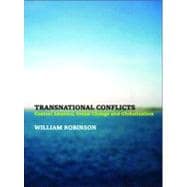
Note: Supplemental materials are not guaranteed with Rental or Used book purchases.
Purchase Benefits
What is included with this book?
| Foreword and Acknowledgements | ix | ||||
| Acronyms and Abbreviations | xiii | ||||
| Introduction: Development and Social Change | 1 | (8) | |||
|
1 | (2) | |||
|
3 | (3) | |||
|
6 | (3) | |||
| 1 The Dialectics of Globalization and Development | 9 | (54) | |||
|
10 | (25) | |||
|
10 | (3) | |||
|
13 | (7) | |||
|
20 | (8) | |||
|
28 | (7) | |||
|
35 | (21) | |||
|
35 | (7) | |||
|
42 | (6) | |||
|
48 | (7) | |||
|
55 | (1) | |||
|
56 | (7) | |||
|
56 | (5) | |||
|
61 | (2) | |||
| 2 The Politics of Globalization and the Transitions in Central America | 63 | (84) | |||
|
64 | (7) | |||
|
64 | (2) | |||
|
66 | (5) | |||
|
71 | (76) | |||
|
71 | (16) | |||
|
87 | (15) | |||
|
102 | (16) | |||
|
118 | (14) | |||
|
132 | (15) | |||
| 3 The New Transnational Model in Central America: I: Incorporation into the Global Economy | 147 | (67) | |||
|
149 | (7) | |||
|
149 | (7) | |||
|
156 | (53) | |||
|
156 | (3) | |||
|
159 | (15) | |||
|
174 | (15) | |||
|
189 | (14) | |||
|
203 | (6) | |||
|
209 | (5) | |||
| 4 The New Transnational Model in Central America: II: Incorporation into Global Society | 214 | (81) | |||
|
214 | (21) | |||
|
214 | (3) | |||
|
217 | (5) | |||
|
222 | (4) | |||
|
226 | (9) | |||
|
235 | (24) | |||
|
236 | (8) | |||
|
244 | (8) | |||
|
252 | (7) | |||
|
259 | (36) | |||
|
259 | (11) | |||
|
270 | (13) | |||
|
283 | (12) | |||
| 5 The Contradictions of Global Capitalism and the Future of Central America | 295 | (38) | |||
|
295 | (17) | |||
|
297 | (3) | |||
|
300 | (3) | |||
|
303 | (5) | |||
|
308 | (4) | |||
|
312 | (13) | |||
|
312 | (3) | |||
|
315 | (4) | |||
|
319 | (6) | |||
|
325 | (8) | |||
|
325 | (5) | |||
|
330 | (3) | |||
| Notes | 333 | (54) | |||
| Index | 387 |
The New copy of this book will include any supplemental materials advertised. Please check the title of the book to determine if it should include any access cards, study guides, lab manuals, CDs, etc.
The Used, Rental and eBook copies of this book are not guaranteed to include any supplemental materials. Typically, only the book itself is included. This is true even if the title states it includes any access cards, study guides, lab manuals, CDs, etc.